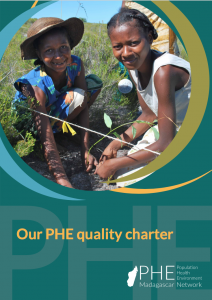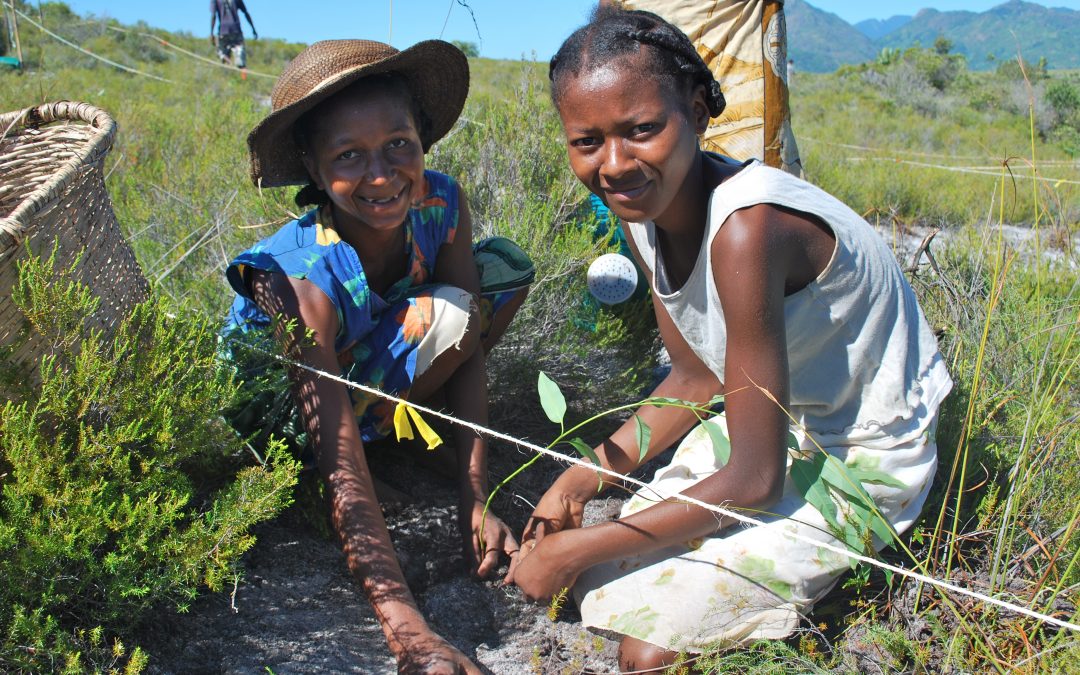Twenty health and environmental organisations in Madagascar have signed the world’s very first Population-Health-Environment (PHE) quality charter, signalling their commitment to rights-based PHE partnerships designed to improve the health of people and the environment.
Madagascar’s PHE movement has been growing rapidly since the creation of a national PHE network in July 2014, with PHE partnerships flourishing in remote areas of marine and terrestrial biodiversity across the country. More than 185,000 people in these rural zones are now benefiting from increased access to family planning and other health services, while being supported to diversify their livelihoods and manage their natural resources sustainably.
 In light of this proliferation of PHE initiatives, members of Madagascar’s national PHE network wanted to develop a tool for assuring the quality and associated impact of their PHE partnerships. The quality charter outlines a set of values and working practices that PHE network members believe are necessary to ensure high quality PHE implementation, with validation criteria that can be used to self-assess or peer-evaluate adherence.
In light of this proliferation of PHE initiatives, members of Madagascar’s national PHE network wanted to develop a tool for assuring the quality and associated impact of their PHE partnerships. The quality charter outlines a set of values and working practices that PHE network members believe are necessary to ensure high quality PHE implementation, with validation criteria that can be used to self-assess or peer-evaluate adherence.
Because all PHE initiatives in Madagascar are implemented through cross-sector collaborations, the PHE quality charter places a strong emphasis on the smooth functioning of partnerships. It also highlights the commitment of all signatories to uphold reproductive rights within PHE initiatives, including every individual’s right to choose freely the number, timing and spacing of their births – without coercion or discrimination.
Nantenaina Andriamalala, coordinator of the Madagascar PHE Network, comments:
“This is an important moment for Madagascar’s PHE movement – we now have a shared set of quality standards that we can use to ensure we’re delivering maximum benefits to people, their health and the environment. We also hope that this PHE quality charter will inspire members of the international PHE community to look at their own PHE initiatives and reflect on the quality of their work. Indeed this PHE quality charter could be taken up by PHE networks in other countries – we’d love to see it being used beyond Madagascar.”
In addition to quality assurance, it’s hoped that this PHE quality charter will prove to be a useful tool for facilitating peer exchange and learning. Madagascar’s national PHE network facilitates regular learning exchange visits between member implementation sites, and now the quality charter will be available to guide discussions around working practices.
Some twenty health and environmental organisations – including Marie Stopes Madagascar, WWF, WCS, Conservation International, Blue Ventures and the Durrell Wildlife Conservation Trust – have already signed the PHE quality charter, and many will be moving to self-assessment and peer accreditation over the coming months.
Download the PHE quality charter here (French version also available here) and contact [email protected] to find out more.

